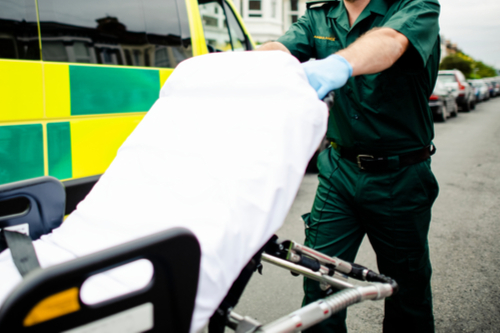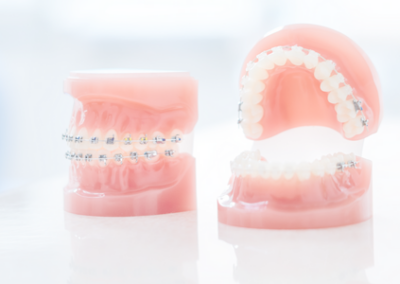‘You can access multiple departments within the hospital without having to look up contacts or numbers on your phone.’
Clinicians within the Scottish Ambulance Service (SAS) have had access to Consultant Connect since 2018. The service enables them to make IG-secure telephone calls to specialists for Professional-to-Professional Advice and use mobile devices to take GDPR-compliant patient photographs. The service allows healthcare professionals to collaborate to decide the best patient pathway.
We spoke with Michael Muir and Keith Dickinson, Paramedics with SAS, to discuss their use of the Emergency Medicine lines and discover how Consultant Connect benefits them, their colleagues, and their patients.
‘Before Consultant Connect, I would look up contacts to find the most direct number for consultants, which could be hit and miss. Prof-to-Prof Advice is a better tool because calls are recorded, and multiple people are on the rota if others are busy. Having the app on my mobile is beneficial because I can access multiple departments within a hospital without needing to look up contacts manually.’
– Michael Muir.
‘If I needed advice before accessing Consultant Connect, I would call ambulance control or ring the A&E department of local GP surgeries. This is a much better avenue as we can access senior advice from a single source that understands the challenges of our environment, distances from available hospitals, our guidelines, and what skills and drugs we have to hand. Because of this, consultants can help paramedics apply the most appropriate treatment and organise transportation to the most appropriate hospital, saving time for everyone involved and ensuring the best patient pathway is followed and avoiding unnecessary attendances at A&E.’
– Keith Dickinson.
Patient Examples
Keith Dickinson
‘During a recent weekend shift, I attended to an elderly patient in severe pain due to a large swelling in their groin. After learning the patient’s past medical history and performing an examination, I was concerned that they were suffering from a strangulated hernia. Our current guidelines require us to convey all surgical cases, except abdominal aortic aneurysms, to Perth Royal Infirmary in the first instance of assessment. I used Consultant Connect to obtain telephone Emergency Medicine prof-to-prof advice to speak with a senior consultant. I raised my concerns that it would be detrimental to the patient to have them taken to Perth Royal Infirmary for assessment, only then to be transferred to Ninewells Hospital for the immediate attention his condition required.
Through immediate discussion with a senior consultant at Ninewells Hospital, we agreed to bypass Perth Royal Infirmary and transfer the patient directly to Ninewells Hospital, which helped speed up their treatment.’
‘For anyone unsure about using the service, telephone Prof-to-Prof Advice is extremely valuable and should be utilised for the benefit of patients.’
Michael Muir
‘I recently spoke to an A&E consultant via the Emergency Medicine line on Consultant Connect regarding a patient experiencing what had the potential of a stroke mimic. I thought the patient was experiencing Bell’s Palsy, so I decided to use telephone prof-to-prof advice to discuss a few steps to confirm this suspected diagnosis. The advice I received gave me the confidence that the best pathway for the patient would be to refer to their local GP rather than undertaking a journey to hospital.
The patient was happy that the outcome resulted in a local appointment with the GP rather than carrying out an 80-mile round trip to hospital.’




